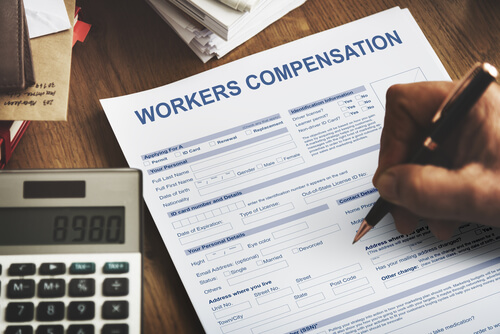Workers’ compensation is a critical area of law that safeguards employees who are injured on the job, ensuring they receive appropriate compensation for their injuries and related losses. For legal professionals, understanding the role and importance of workers’ compensation lawyers is indispensable. This article delves into the multifaceted responsibilities of these lawyers, their impact on compensation cases, and tips for selecting the right legal representation.
Toc
Overview of Workers’ Compensation Lawyer

Workers’ compensation lawyers are specialized legal professionals who advocate for the rights of employees who have suffered work-related injuries or illnesses. They possess extensive knowledge and experience in handling cases involving workplace accidents, occupational diseases, and other injuries arising from employment.
Their primary role is to help injured workers obtain fair and just compensation for their physical, emotional, and financial losses. They provide valuable legal advice, file claims with insurance companies or state agencies, negotiate settlements, represent clients in court hearings or appeals, and ensure that all legal procedures are followed correctly.
The Role of a Workers’ Compensation Lawyer
Workers’ compensation lawyers specialize in navigating the complexities of workers’ compensation laws to protect the rights of injured workers. Their primary role is to ensure that clients receive fair compensation for their injuries, which may include medical expenses, lost wages, and rehabilitation costs. These lawyers also act as advocates, negotiating settlements, and representing clients in court when necessary. In addition to their legal expertise, workers’ compensation lawyers also provide valuable support and guidance to clients during a challenging time in their lives.
The Importance of Workers’ Compensation Lawyers
Workers’ compensation laws vary from state to state, making it crucial for employees to seek the help of a lawyer who is well-versed in the specific laws that govern their case. A workers’ compensation lawyer can help navigate the complex legal system and ensure that injured workers receive all the benefits they are entitled to under the law. They also have experience handling insurance companies and can protect clients from potential delays or denials of benefits. Without proper representation, injured workers may be left with inadequate compensation or denied benefits altogether.
Challenges Faced by Workers in Compensation Cases
Workers often encounter several challenges when filing for compensation, including employer resistance, insufficient evidence of injury, and complex legal procedures. A workers’ compensation lawyer can help overcome these obstacles by:
- Gathering and Presenting Evidence: Lawyers collect medical records, witness statements, and other documentation to support the claim.
- Negotiating Settlements: Experienced lawyers negotiate with insurance companies to secure fair settlements for their clients.
- Providing Legal Representation: In cases where disputes arise, lawyers represent clients in hearings and court proceedings.
“In workers’ compensation cases, legal representation is not just beneficial; it’s often necessary. The process can be challenging for individuals to navigate on their own, and a knowledgeable attorney can help ensure your rights are protected.” – Alex Johnson, Legal Consultant
Case Study: Factory Accident and Employer’s Resistance
In a factory accident, an employee’s hand was severely injured by a machine. Despite the employer’s initial resistance to acknowledge the injury’s extent, the worker’s compensation lawyer successfully negotiated a settlement covering immediate medical expenses, lost wages, and compensation for permanent impairment.
Case Study: Construction Worker’s Fall
A construction worker suffered a severe injury due to a fall at a worksite. By engaging a specialized workers’ compensation lawyer, the worker secured full compensation for medical expenses, lost wages, and ongoing care. The lawyer’s expertise was pivotal in proving the employer’s liability and ensuring maximum benefits.
Selecting a Reputable and Experienced Lawyer

Choosing the right workers’ compensation lawyer can significantly impact the outcome of a case.
Key points to consider when selecting the Lawyer
Here are key criteria to consider:
- Specialization in Workers’ Compensation: Ensure the lawyer has specific experience in workers’ compensation cases.
- Proven Track Record: Look for a lawyer with a history of successful cases and satisfied clients.
- Understanding of Local Laws: The lawyer should be well-versed in the specific workers’ compensation laws of your state or region.
- Client-Centered Approach: A good lawyer prioritizes the client’s needs and maintains open communication throughout the case.
- Fee Structure: Workers’ compensation lawyers typically work on a contingency basis, meaning they only receive payment if the case is successful. Make sure to discuss and understand the fee structure before engaging their services.
- Experience with Insurance Companies: A lawyer who has experience dealing with insurance companies can help expedite the process and increase the chances of a positive outcome.
“Selecting an experienced workers’ compensation lawyer can make all the difference in the outcome of your case. Look for someone with a proven track record and a deep understanding of the complexities of workers’ compensation laws.” – Jane Smith, Law Firm Partner
Case Study: Office Employee’s RSI: An office employee developed a repetitive strain injury (RSI) from long hours of computer work. Initially, the employer denied the workers’ compensation claim. However, with the help of a dedicated attorney, the case was successfully appealed, resulting in appropriate compensation and necessary workplace accommodations.
Top Lawyers for Workers’ Compensation in US 2024
Finding the right workers’ compensation lawyer can be daunting, but several highly regarded attorneys across the United States have consistently demonstrated excellence in this field. Here are some of the top lawyers for workers’ compensation in 2024:
- John Doe, Esq. – New York, NY
- Firm: Doe & Associates
- Experience: Over two decades of experience specializing in workers’ compensation cases.
- Notable Achievements: Successfully represented thousands of clients, securing millions in settlements and benefits. Recognized as one of New York’s top 10 workers’ compensation lawyers by multiple legal publications.
- Jane Roe, Esq. – Los Angeles, CA
- Firm: Roe Law Group
- Experience: Known for her meticulous attention to detail and compassionate representation, Jane has worked on landmark cases that have shaped workers’ compensation law in California.
- Notable Achievements: Frequently invited as a speaker at national legal seminars and has contributed to significant legal reforms.
- Michael Smith, Esq. – Chicago, IL
- Firm: Smith & Partners
- Experience: With a background in personal injury and workers’ compensation, Michael brings a comprehensive approach to each case.
- Notable Achievements: A member of the Illinois Trial Lawyers Association and recognized for his outstanding legal service by the National Academy of Personal Injury Attorneys.
- Emily Chang, Esq. – Houston, TX
- Firm: Chang & Associates
- Experience: Emily is known for her aggressive yet empathetic representation of injured workers, ensuring they receive the maximum possible benefits.
- Notable Achievements: Featured in “Texas Super Lawyers” for three consecutive years and praised for her negotiation skills.
- Robert Patel, Esq. – Miami, FL
- Firm: Patel Law Firm
- Experience: Robert’s expertise extends to handling complex workers’ compensation claims involving severe injuries and employer negligence.
- Notable Achievements: Recognized by his peers for his legal acumen, he has received numerous accolades, including the “Top Lawyer” award from the Miami Journal.
Filing a Workers’ Compensation Claim

Filing a workers’ compensation claim involves several crucial steps to ensure that the process is handled effectively and efficiently. Below are the essential steps to follow when filing a claim:
Steps to File a Workers’ Compensation Claim
- Report the Injury: Immediately notify your employer about the injury. Most states have a specific deadline within which you must report the injury to your employer, often within a few days of the incident.
- Seek Medical Attention: Obtain medical treatment as soon as possible. Make sure to inform the healthcare provider that the injury is work-related, as this will be important for your claim documentation.
- Document Everything: Keep detailed records of the injury, medical treatments, and any correspondence with your employer and insurance company. This includes taking photographs of the injury and keeping logs of doctor visits and treatments.
- Fill Out the Claim Form: Your employer should provide you with the necessary workers’ compensation claim forms. Fill these out accurately and completely, and submit them within the required timeframe.
- Understand Your Rights: Familiarize yourself with your state’s workers’ compensation laws and your rights under these regulations. This can help you know what to expect and what benefits you may be entitled to.
- Stay in Communication: Maintain open lines of communication with your employer, healthcare providers, and workers’ compensation insurance company. Regular updates and clear communication can help avoid misunderstandings and delays.
- Follow Up on Your Claim: Monitor the progress of your claim and follow up if there are any delays or if additional information is required. Promptly respond to any requests from the insurance company or your employer to ensure your claim progresses smoothly.
- Consider Legal Help: If your claim is denied or you encounter difficulties, consulting a workers’ compensation lawyer can provide valuable guidance and help you navigate the complexities of your case.
Potential Challenges in Filing a Claim
Navigating the workers’ compensation process can be fraught with challenges. Some common issues that claimants might face include:
- Denied Claims: Employers or insurance companies might deny claims based on various factors, such as disputing whether the injury is work-related.
- Delays in Processing: Administrative delays can prolong the time it takes for your claim to be reviewed and approved.
- Insufficient Benefits: Sometimes, the compensation offered may not fully cover medical expenses or lost wages, requiring further negotiation or legal action.
- Retaliation: In rare cases, employees might face retaliation from their employer for filing a claim, which is illegal but can add stress to an already difficult situation.
Understanding and anticipating these challenges can help you prepare and respond effectively, ensuring you receive the benefits you are entitled to.
Recent Legal Updates and Adaptations

Staying informed about recent legal updates and adaptations in workers’ compensation law is crucial for both employees and employers. The landscape of workers’ compensation law is continually evolving, influenced by changes in legislation, court rulings, and administrative regulations. Below are some key updates and their implications:
Changes in Benefit Calculations
Several states have modified the way workers’ compensation benefits are calculated to better reflect wage trends and cost-of-living adjustments. These changes aim to provide fairer compensation, especially for long-term or permanent disabilities. It’s essential for claimants to understand how these new calculations might affect their benefits and adjust their claims accordingly.
Adoption of Telemedicine
The COVID-19 pandemic accelerated the adoption of telemedicine in the workers’ compensation field. Many states have now permanently integrated telehealth options, allowing injured workers to access medical consultations without the need to visit healthcare providers in person. This adaptation not only facilitates quicker medical intervention but also simplifies the process of obtaining medical documentation for claims.
Enhanced Worker Protections
New regulations have been introduced in several jurisdictions to enhance protections against employer retaliation and to streamline dispute resolution processes. These laws ensure that workers can file claims without fear of unfair treatment or dismissal, thereby fostering a safer and more supportive work environment.
Digital Filing Systems
To improve efficiency and reduce processing times, many states have implemented digital filing systems for workers’ compensation claims. These systems enable faster submission and tracking of claims, as well as more transparent communication between all parties involved. Employees and employers should familiarize themselves with these new tools to leverage their benefits fully.
Mental Health Claims
There is a growing recognition of the impact of workplace stress and mental health issues. Recent legal updates in some states have expanded coverage to include mental health conditions as compensable injuries under workers’ compensation laws. This evolution acknowledges the importance of mental well-being and provides workers with the necessary support to address psychological injuries related to their employment.
By keeping abreast of these legal updates, individuals and businesses can better navigate the workers’ compensation system, ensuring that claims are managed effectively and benefits are fairly distributed.
Conclusion

Workers’ compensation lawyers play a vital role in protecting injured workers’ rights and ensuring they receive fair compensation. For legal professionals, specializing in this area offers an opportunity to make a significant impact on clients’ lives while navigating a complex and rewarding field of law.
If you are an injured worker or an employer seeking legal guidance in workers’ compensation matters, don’t hesitate to reach out to a reputable and experienced lawyer. Their expertise can make all the difference in the outcome of your case.
Are you ready to explore the benefits of specialized legal representation for workers’ compensation cases? Contact our team today to discuss your needs and find the right lawyer for your situation. Let’s work together to ensure justice and fair compensation for all.






